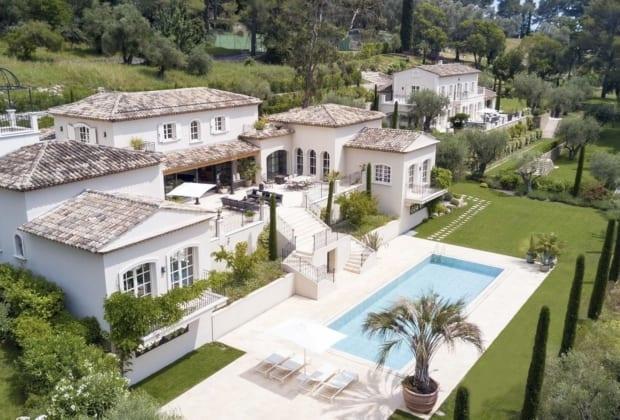Demand in the international luxury property market has remained very high on a global level since the end of the 2008-2009 financial crisis.
The general trend is a regular increase in the number of transactions and in prices for almost 20 years. Context, political and economic shocks, and changes in tax policy have contributed to regulating and/or slowing this phenomenon during precise periods in certain of the world’s countries and regions. Investing in international luxury property is still a safe bet in the long-term however, in the short- and mid-term, timing is paramount. For example, tax hikes and Brexit put an end to rising prices and signaled the start of a period of correction in London. The socialist digression in France was accompanied by a 30% drop in prices over the period, meanwhile the demands for independence in Catalonia led to a massive withdrawal of investors from the Barcelona region and from Spain as a whole.
Europe: A Continent of Contrasts
The United Kingdom: Waiting for Brexit
The most immediate impact of the U.K.’s Brexit vote in June 2016 was a drop in the value of the pound sterling, which fell to its lowest level against the U.S. dollar in 31 years and its lowest ever level against the euro since the currency was created in 1999. The International Monetary Fund also revised the U.K.’s growth previsions down to 1.7% for 2017, while the same figures for Italy, France, and Germany were bolstered.
Despite everything, London is still one of the world’s most attractive major capitals. The crisis in the U.K. has created real estate opportunities the likes of which are only seen once every two or three generations!
Alex Newall, Director of BARNES Private Office, London
The uncertainly around Brexit was accompanied by a steep rise in Stamp Duty. Property sales in London dropped by almost 50% in 2016, and the market remained sluggish in 2017. In euros, the decrease in prices in London has been estimated at more than 35% over these last two years. Brexit has also had an indirect effect on the real estate market, with many British citizens selling their secondary residences in the Eurozone (including in France, where the phenomenon is taking hold in Provence) to take advantage of the resulting pay-off in a strong currency.
Spain and the Catalan Uncertainty
Catalonia is another example of the contrasting situations observed across the continent. The Spanish province declared its independence on October 1, 2017, following a referendum condemned as illegal by the central government in Madrid. A second, official referendum was therefore organized for December 21, 2017, which saw the independentists win the absolute majority in the regional parliament with 70 seats out of 135. It now remains to be seen how Spain will deal with this unique new crisis, as the country found itself facing a question mark at the beginning of 2018. The question is an important one, as Catalonia is the richest autonomous region in Spain and one of the most influential in Europe. And is made all the more crucial as a region-wide demand for independence suggests similar nationalistic trends may start appearing across the continent.
This political and economic uncertainty affects both the ultra-wealthy and modest savers. The real estate consequences have been immediate, with non-Catalan Spanish owners selling their properties in the region to bring their assets back into the rest of the country.
Emmanuel Virgoulay, Managing Partner of BARNES Barcelona
In late 2017, many property sales were concluded between 20% and 30% of the asking price in Catalonia, particularly in Barcelona. This context offers an opportunity for foreign buyers with sufficient liquidity, as Catalonia boasts solid, long-term advantages such as tourist and golfing sectors that are highly popular with European, American, and Asian clients.
The Macron Effect in France
The financial community breathed a sigh of relief when Emmanuel Macron was elected president of France. He took over from the highly unpopular François Hollande, a self-proclaimed “enemy of finance.”
Emmanuel Macron is a 39-year-old former banker with perfect spoken English, who reassured investors and international clients with his first economic measures, which were also applauded by the markets. The French real estate market has since seen a revival in both the new and established property sectors. However, the effects of the replacement of the former Impôt sur la fortune (“wealth tax”) by the new Impôt sur la fortune immobilière (“real estate wealth tax”) remain to be seen. This legislation is certainly less restrictive for private portfolios, while retaining real estate assets as a base for calculating the new tax.
The property market picked up again in 2015, defined by a return of French investors to France. Since 2015, prices in Paris have increased by 20%, while transactions grew more than 25% in 2017 compared with 2016.
Source: Barnes Global Property Handbook
Voir cette page en Français

